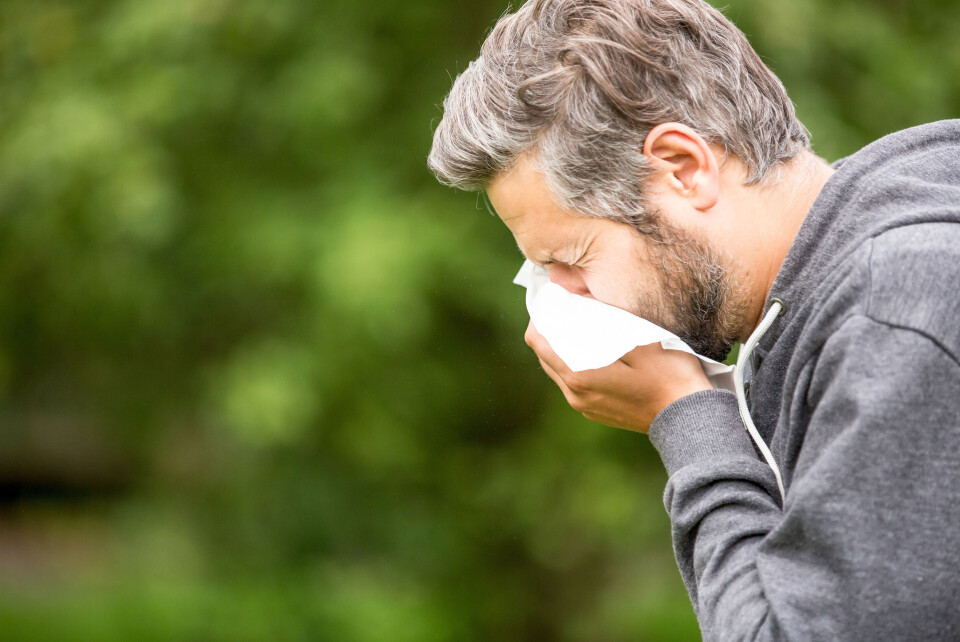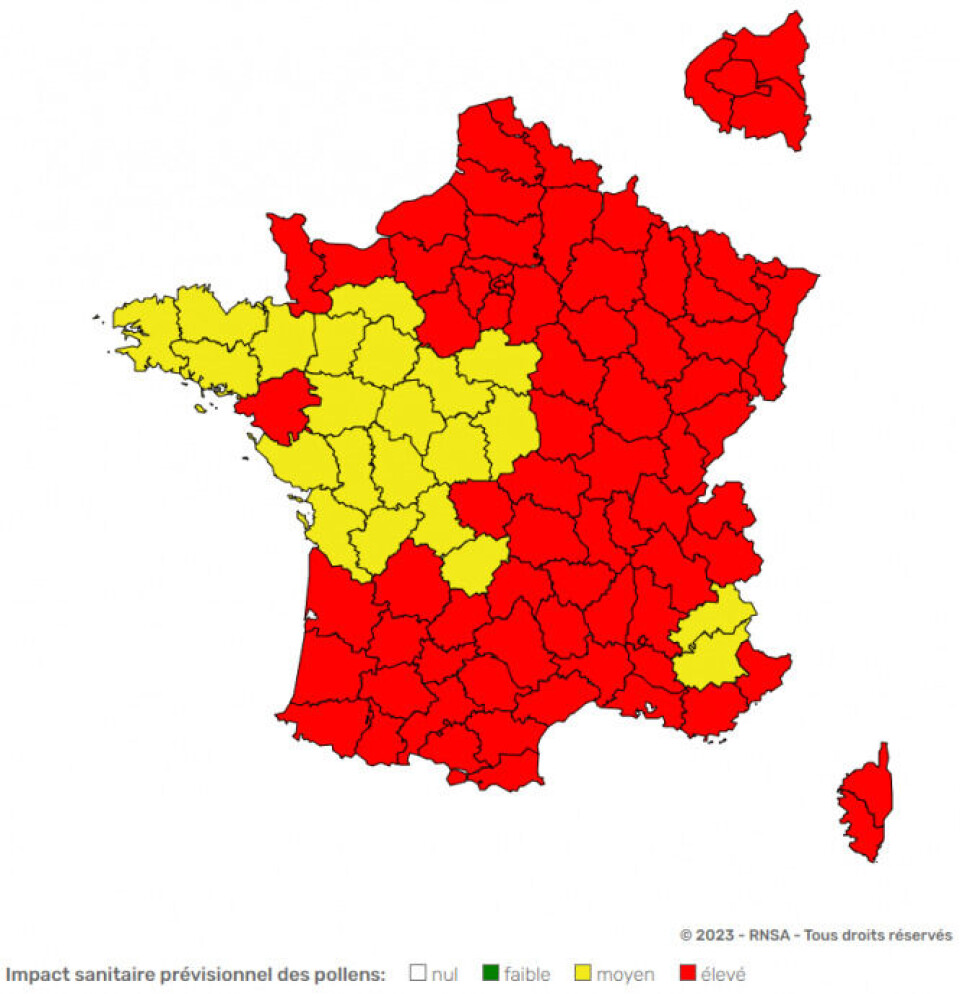-
Occitanie copper phase-out ramps up – how it will affect residents
There are some simple steps you can take to prepare for the switchoff
-
Which cars are stolen the most in France and why?
Perhaps surprisingly, the higher-end vehicles are not the most targeted
-
Several wolf sightings in centre of Frejus, Var
Rules have been relaxed around shooting wolves that threaten livestock
Warmer weather brings early pollen allergy alerts for most of France
The risk level is high in many areas and experts warn those with sensitivities to take particular care

Pollen alerts are in place for most of France with the risk level issued at ‘high’ for many areas. Allergy experts warn people at risk to consult a doctor if they have asthma symptoms.
The alert levels are slightly earlier this year than the average due to warmer weather causing trees to blossom earlier.
Most of the north, east and south are affected including Corsica. Only the Hautes-Alpes and the Alpes-de-Haute-Provence are at a lower ‘yellow’ alert level in the southeast. In contrast, only Loire-Atlantique is at the highest ‘red’ alert level in the west and Brittany.

Image credit: Screenshot / Pollens.fr / RNSA
In its most recent update (February 21), air quality monitoring service Réseau national de surveillance aérobiologique (RNSA), said: “Cypress pollen will bother allergy sufferers in the Mediterranean area with a high level of allergy risk. The risk of allergy will also be high in the south west with the cocktail of alder, hazelnut and Cypress pollens.
“The risk of allergy will be high over a large part of the country for alder pollens, which are increasing in strength. The risk of allergy will be medium to locally high for hazel pollens and lower for ash pollens.
“Willows, honeysuckle, marigolds, mimosas (Acacia), and poplars are also beginning to flower with a risk of allergy that will be at a low level but with possible allergies in sensitive people.”
It concluded: “Only the return of rain will bring temporary relief to allergy sufferers.”
Samuel Monnier, from the RNSA, told TF1 Info that the mild temperatures in France over the past few weeks, and no rain, have prompted trees to blossom early, worsening the pollen situation.
He said: “The current temperatures in France are more like [those normally seen] in March-April.”
Studies show that pollen levels always rise when temperatures increase. Pollution from vehicles and other emissions can also worsen the issue.
Typical symptoms include sneezing; itchy nose, eyes, ears; and streaming eyes. Paris allergy specialist Sophie Silcret-Grieu told FranceInfo that some people experience symptoms “of such an intensity that people can’t sleep…they feel as though they have flu and they are very tired.”
Read also: Pollen sensors show real-time data to hay fever sufferers in France
Advice for people with allergies
The Association des pollinariums sentinelles de France advises that people with allergies and sensitivities:
-
Aerate your home in the morning and evening
-
Close windows during the day
-
Avoid spending too long outside or in the garden
-
Do not drive with the windows of your vehicle open
-
Avoid drying clothes or sheets outside
-
Rinse your hair in the evening, especially if you have spent time outdoors
Botanist at the association, Salomé Pasquet, also said: “It’s also important to get a checkup at the doctors to know what you’re allergic to, so you can adapt your treatment.”
Ms Silcret-Grieu agreed. She said: “It is very important to get a check if you have symptoms of asthma.”
She said that the only real treatment for allergies like this is exposure and ‘desensitisation’, but that this treatment should be done with a doctor, “away from the pollen season”.
The number of people who suffer from bad hay fever is increasing. The World Health Organisation indicates that by 2050, 50% of the population will be allergic. In France alone, the percentage of people who suffer has risen from 5% to almost 30% in the past 30 years.
Ms Silcret-Grieu added that people whose symptoms stop them from taking part in their usual activities should consult a doctor, especially if they have any symptoms of asthma, a cough, or respiratory problems.
Treatment may include antihistamine pills, sprays, or eye drops.
Related articles
Pollen allergies in France worse this year and set to intensify
Allergies in France: Do anti-Covid masks protect against pollen?
























